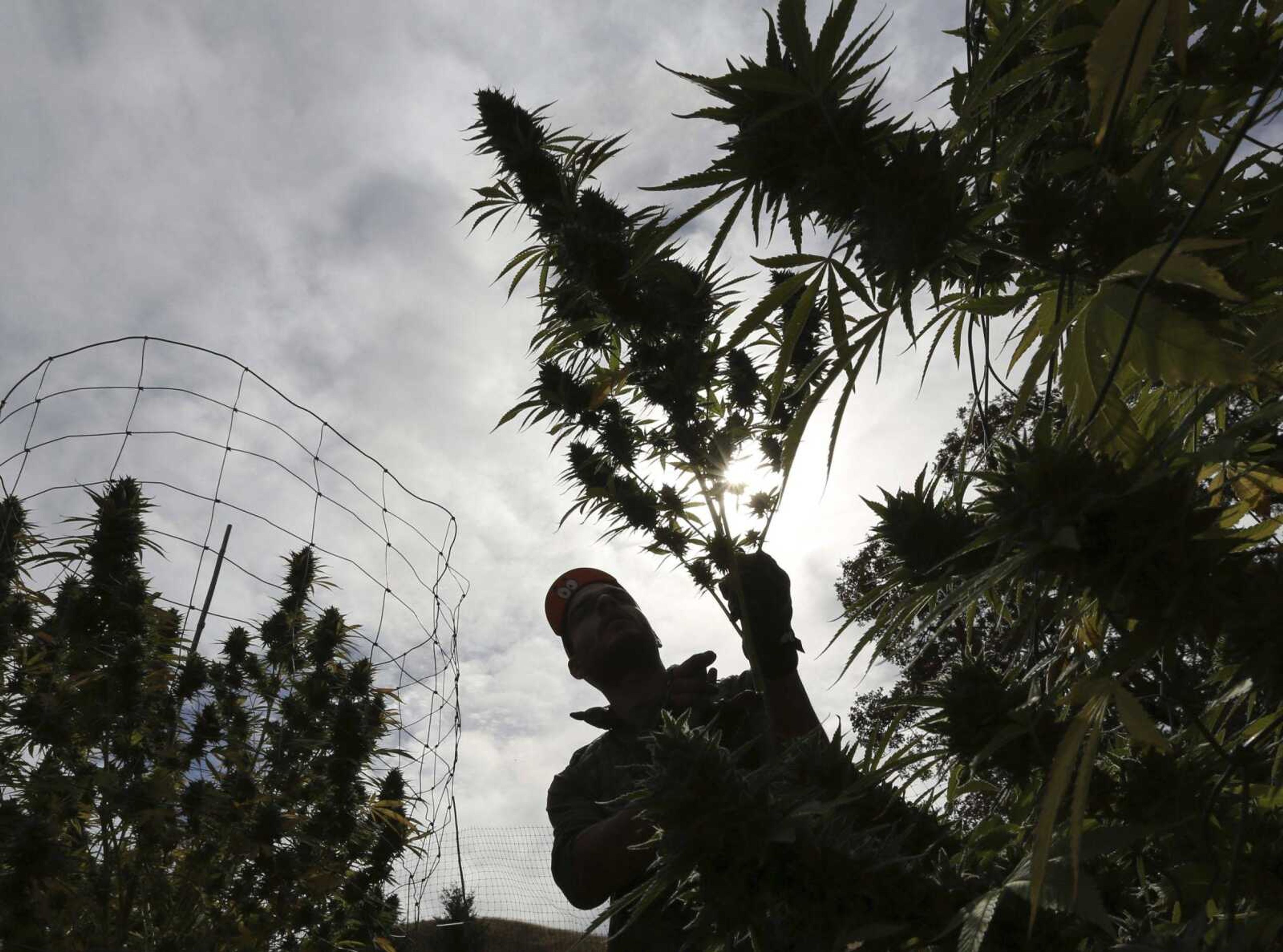California ponders how to enforce taxes on legal pot
LOS ANGELES -- California's legal marijuana industry is expected to involve everything from backyard growers to sprawling fields in the farm belt, storefront sellers along rural roads and chain-store-like outlets in Los Angeles. State tax collectors are taking initial steps to get a hand into that vast, emerging economy, with billions of dollars at stake in the future for the state treasury. ...
LOS ANGELES -- California's legal marijuana industry is expected to involve everything from backyard growers to sprawling fields in the farm belt, storefront sellers along rural roads and chain-store-like outlets in Los Angeles.
State tax collectors are taking initial steps to get a hand into that vast, emerging economy, with billions of dollars at stake in the future for the state treasury. State analysts have estimated state and local governments eventually could collect over $1 billion annually from the production and sale of legal pot.
Just how big a job that will be, no one knows.
The state has no reliable way to predict how many new retailers will enter the marketplace when marijuana becomes legal in 2018. It's estimated there could be 25,000 cultivators who will have to register and begin paying taxes.
But it's only a guess how many operations making money off the fragrant, sticky buds will try to remain hidden in the black market.
"It's just going to be the wild, wild West out there," predicted Jerome Horton, who sits on the state's tax-collecting Board of Equalization.
The panel on Tuesday started framing its job, approving on a divided vote a proposal to request funds to begin adding staff gradually in anticipation of collecting taxes from the legal sale and cultivation of marijuana.
The board's action came three weeks after voters approved Proposition 64, which legalized the recreational use of marijuana in the nation's most populous state.
A draft report made an early estimate of new jobs that would be needed to police the market and make sure everyone is paying up: by 2021, 114 positions and nearly $20 million in funding. But with so many unknowns, several board members acknowledged those figures likely would need to be updated within months.
Horton, at the meeting in Culver City, California, called the projections "grossly understated."
California was the first state to embrace legal, medicinal marijuana two decades ago, and the board estimates there are 1,700 dispensaries operating in the state.
The California vote Nov. 8 represented the national legalization movement's biggest victory to date and sets the stage for a sweeping transformation.
The new law attempts, at least in theory, to tame a market that now ranges from legal, medicinal production and sales to vast illegal grows operated by drug cartels.
In general, the state will treat cannabis like it does alcohol.
Taking effect in 2018, the law allows people 21 and older to possess up to an ounce of pot and grow six marijuana plants at home. It also allows cities and counties to impose their own regulations and taxes on recreational marijuana.
Proposition 64's approval comes with two new state taxes on legal weed: Consumers will pay a 15 percent excise tax on the retail selling price, which applies to recreational and medical marijuana.
Separately, a cultivation tax will be imposed on all harvested marijuana that enters the commercial market. Local governments also can take a bite, and dozens of communities are ready to impose new levies and regulations.
With pot-growing long a growth industry for criminal gangs and cartels, there are fears about possible violence against tax inspectors or investigators who go looking for hidden grows.
Meanwhile, with pot remaining illegal on the federal level, it's unclear what stance the incoming Donald Trump administration will take with the new marketplace.
California and other weed-friendly states might be in for trouble: Trump's pick for attorney general, Alabama Sen. Jeff Sessions, has called marijuana a danger that should not be legalized.
Connect with the Southeast Missourian Newsroom:
For corrections to this story or other insights for the editor, click here. To submit a letter to the editor, click here. To learn about the Southeast Missourian’s AI Policy, click here.










